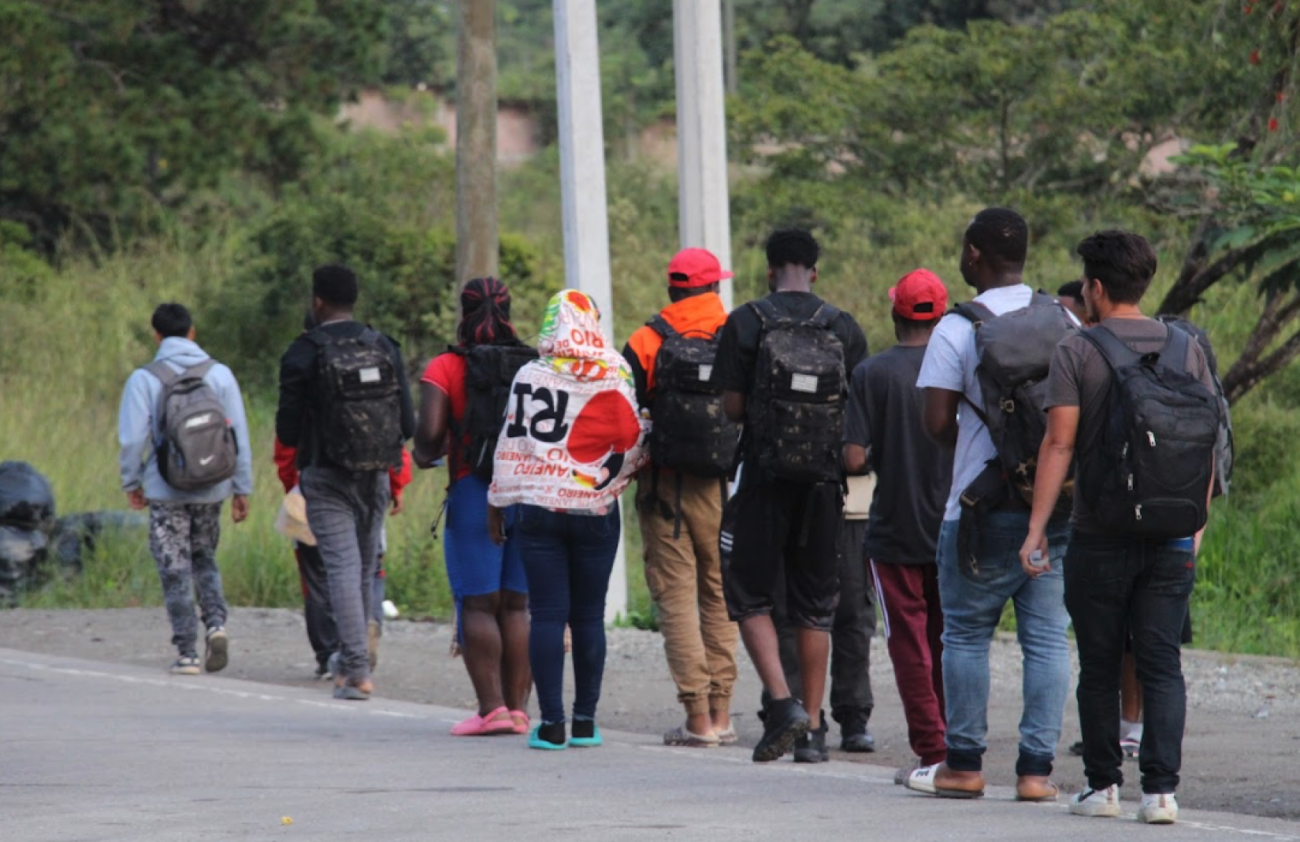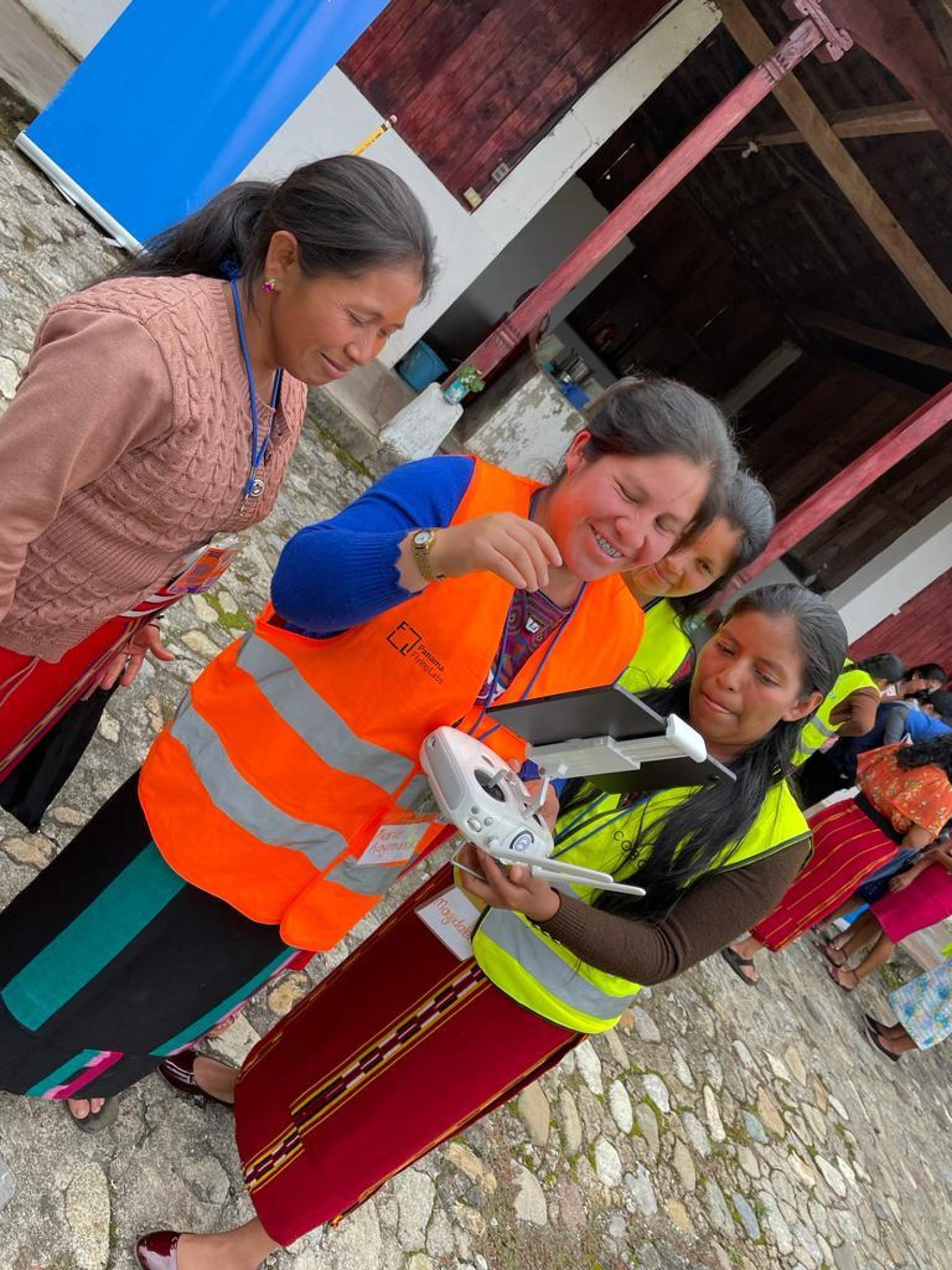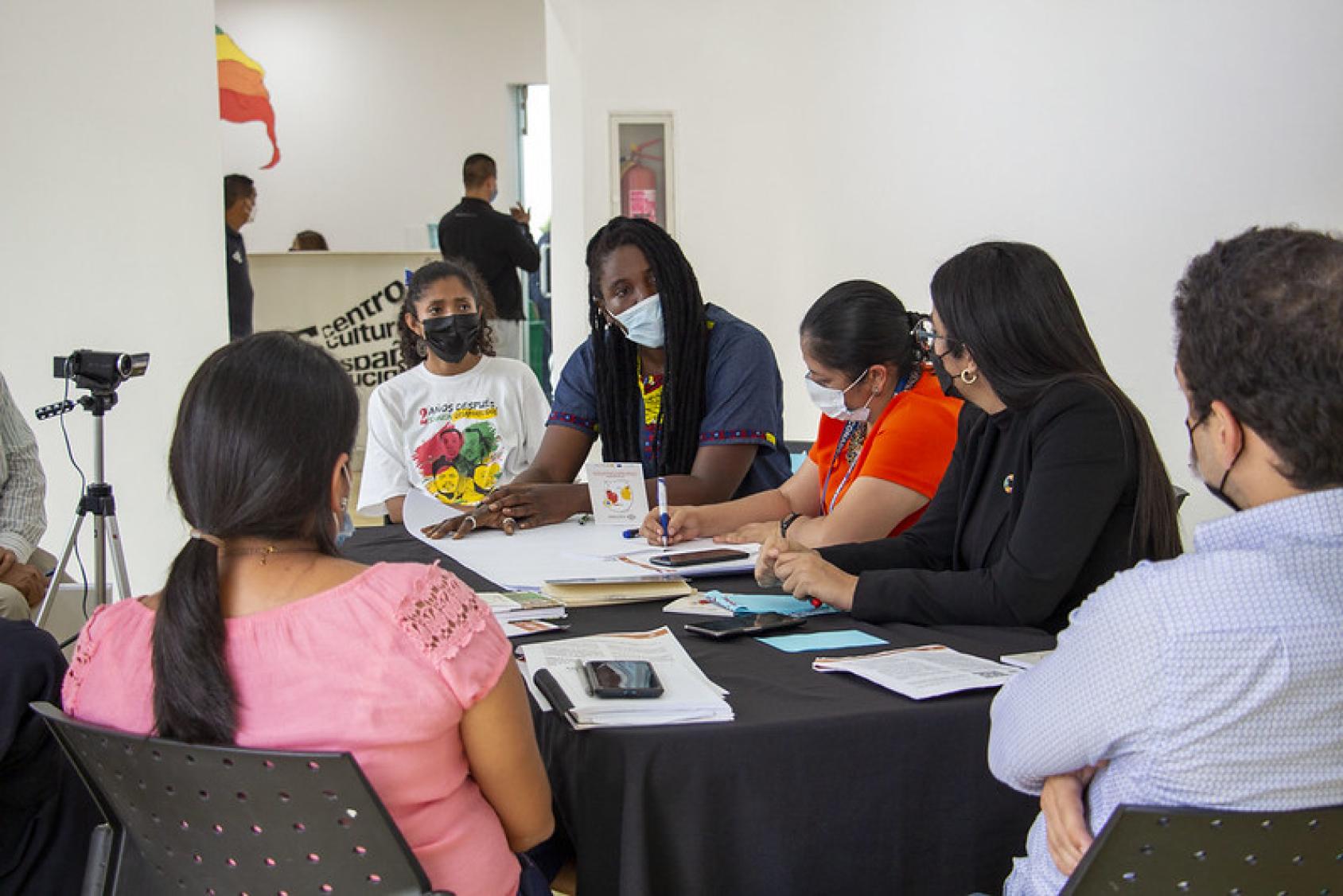RCOs Driving UN 2.0 for Impact in Central America

In a rapidly changing world with countries facing unprecedented challenges, a renewed approach is necessary. Building a United Nations aligned with cross-pillar thinking lies at the core of UN 2.0 — the organization’s vision for harnessing innovation for real-world impact—across humanitarian, development and peace work.
From leveraging data-driven decision-making to digital technologies, strategic foresight to insightful behavioural solutions— entities and country teams across the UN are shifting the organization’s culture to be more agile. Challenges can be anticipated, and proactive choices can be made. What is needed is a future-focused mindset in designing and implementing programmes that strive to improve inclusive service delivery to all, starting with the most marginalized.
Resident Coordinator’s Offices (RCOs) have a unique role to play in realizing the promise of UN 2.0. As front-runners for this shift, they are setting the tone for how innovation and cutting-edge skills can respond to realities on the ground, while fostering environments that bring dynamic coordinated solutions for sustainable development across 162 countries and territories.
Challenges in Central America include entrenched poverty and inequalities, disasters spawned by climate change, organized crime and gender-based violence, which in turn push thousands of affected populations to migrate north risking their lives and that of their families. These complex challenges demand data-driven and future-oriented innovative solutions.

Coordination: Insights for effective action
Guided by the UN 2.0 framework, RCOs are using data and behavioral insights to rethink initiatives and enable UN country teams to quickly identify common initiatives, to pool information, and to rally new partners to deliver the greatest impact.
In Guatemala and Honduras, UN teams are mapping and providing a granular analysis on how UN entities and partners are jointly implementing humanitarian, development, and peace initiatives. The information gathered is further shared, identifying areas of overlap and synergy, leading to better teamwork, and ensuring resources are used wisely.
Innovation with inclusion is non-negotiable
In Guatemala, the RCO played a pivotal role in spearheading a government-backed Digital Readiness Assessment, which identified gaps in the country's digital governance and offered data-driven solutions to improve public services for everyone.
The RCO facilitated a "whole-of-society dialogue", involving all stakeholders to contribute to the development of the Assessment, led by the United Nations Development Programme (UNDP). This open dialogue helped detect weaknesses in digital governance in public administration and proposed joined-up solutions, ranging from digital literacy training to women and girls to electronic payment options for public services by migrants and refugees.
Additionally, partnering with the United Nations Children's Fund (UNICEF), they ensured mothers in remote areas received critical health information through text messages in their native languages. Meanwhile, the United Nations Educational, Scientific and Cultural Organization (UNESCO) joined the initiative, driving state-of-the-art digital education and capacity development, as part of the recently won Joint SDG (Sustainable Development Goals) Fund’s Digital Transformation window.

Cultivating a culture of innovation fosters environments that encourage creativity, risk-taking, and continuous learning. It is about viewing challenges as opportunities to co-generate groundbreaking ideas, not simple problem-solving.
In Honduras, a previously overlooked segment – youth – has found a powerful voice. The innovative "Ideation Sessions," empowered young leaders to co-create solutions for their country's future. Providing a platform for young Hondurans to identify their priorities, collaborate across organizations, and develop actionable plans, these sessions foster a sense of ownership and agency among young people and ensures that solutions are tailored to address their communities' specific needs and realities, which have informed the UN Sustainable Development Cooperation Framework in the country. Thriving under youth leadership, and supported by UNESCO and UNICEF, these sessions built capacity for 70 youth organizations, facilitating their participation in national development. Today, these organizations are key players, contributing to implementing the Cooperation Framework and the country's contribution to the upcoming Summit of the Future.
Beyond, Guatemala and Honduras, the RCOs act as resourceful outposts, serving as hubs for collaboration, data analysis, and innovation. By championing agility, ensuring psychological safety, preaching inclusion, and eyeing results, they are transforming the way the UN works on the ground. This is nothing short of a paradigm change. And it is paramount to demonstrate the UN's commitment to be fit for purpose to leave no one behind.
UN 2.0 Week took place from April 22-26, 2024, showcasing the innovative work happening across the UN system. To learn more about UN 2.0 and how it is driving impact visit www.un-two-zero-week.org to explore inspiring initiatives and the UN teams behind them.
This blog was written by Head of the Resident Coordinator’s Office in Guatemala, Peride Blind, and Head of the Resident Coordinator’s Office in Honduras, Sergio Aguiñada. To learn more about the work of the UN in Guatemala, visit guatemala.un.org and to learn more about the UN’s work in Honduras visit honduras.un.org.













